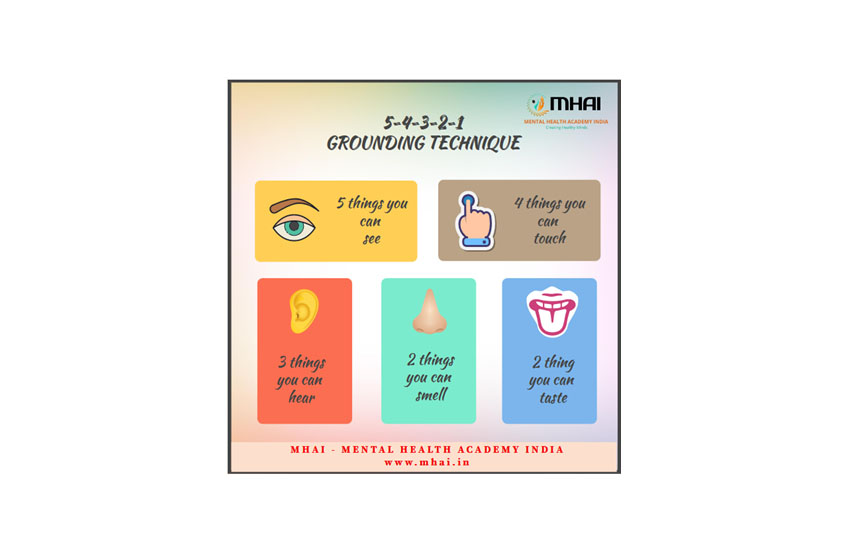
Everyone feels stressed from time to time, but what is stress? How does it affect your overall health? And what can you do to manage your stress?
Stress is how the brain and body respond to any demand. Any type of challenge—such as performance at work or school, a significant life change, or a traumatic event—can be stressful.
Stress can affect your health. It is important to pay attention to how you deal with minor and major stressors, so you know when to seek help.
Here are five things you should know about stress.
1.Stress affects everyone
Everyone experiences stress from time to time. There are different types of stress—all of which carry physical and mental health risks. A stressor may be a one-time or short-term occurrence, or it can happen repeatedly over a long time. Some people may cope with stress more effectively and recover from stressful events more quickly than others.
Examples of stress include:
• Routine stress related to the pressures of school, work, family, and other daily responsibilities.
• Stress brought about by a sudden negative change, such as losing a job, divorce, or illness.
• Traumatic stress experienced during an event such as a major accident, war, assault, or natural disaster where people may be in danger of being seriously hurt or killed.
2. Not all stress is bad
Some amount of stress is good. Only beyond a point where stress becomes distress it is a problem.
In a dangerous situation, stress signals the body to prepare to face a threat or flee to safety.
In these situations, your pulse quickens, you breathe faster, your muscles tense, and your brain uses more oxygen and increases activity—all functions aimed at survival and in response to
stress.
In non-life-threatening situations, stress can motivate people, such as when they need to take a test or interview for a new job.
3.Long-term stress can harm your health
Coping with the impact of chronic stress can be challenging. Because the source of long-term stress is more constant than acute stress, the body never receives a clear signal to return to normal functioning. With chronic stress, those same lifesaving reactions in the body can disturb the immune, digestive, cardiovascular, sleep, and reproductive systems. Some people may
experience mainly digestive symptoms, while others may have headaches, sleeplessness, sadness, anger, or irritability.
Over time, continued strain on your body from stress may contribute to serious health problems, such as heart disease, high blood pressure, diabetes, and other illnesses, including mental disorders such as depression or anxiety.
4. There are ways to manage stress.
The first step is to acknowledge that you are under stress. Denying it just makes it worse.
- Be observant – Recognize the signs of your body’s response to stress, such as difficulty sleeping, increased alcohol and other substance use, being easily angered, feeling depressed, and having low energy.
- Get regular exercise – Just 30 minutes per day of walking can help boost your mood and improve your health.
- Try a relaxing activity – Explore relaxation or wellness programs, which may incorporate meditation, muscle relaxation, or breathing exercises. Schedule regular times for these and other healthy and relaxing activities.
- Set goals and priorities – Decide what must get done now and what can wait. Learn to say “no” to new tasks if you start to feel like you’re taking on too much. Try to be mindful of what you have accomplished at the end of the day, not what you have been unable to do.
- Healthy Diet – Eating regularly, balanced food. Not keeping stomach empty, and not snacking with junk food before meals.
- Activities – Gardening, driving into nature, trekking also helps in reducing your stress.
- Writing an angry letter or expressing feelings and then burning/ tearing it.
- Stay connected – You are not alone. Keep in touch with people who can provide emotional support and practical help. To reduce stress, ask for help from friends and family.
5. If you feel overwhelmed by stress, ask for help from a health professional
You should seek help right away if you have suicidal thoughts, are overwhelmed, feel you cannot cope, or are using drugs or alcohol more frequently as a result of stress. Your doctor may be able to provide a recommendation.
Remember: Watching movies/TV, consuming too much alcohol, excessive eating, wild long partying, rash driving, crying alone, brooding over problems, sex (without love), having relationship of convenience, hanging out with friends only to be part of the ‘gang’ can only postpone stress but will not help you in reducing your stress.
The most important thing is to resolve the issues that causes stress, even if the issues are in the past. Stress is cumulative, it keeps adding up over time.
-Ranjitha Raj




